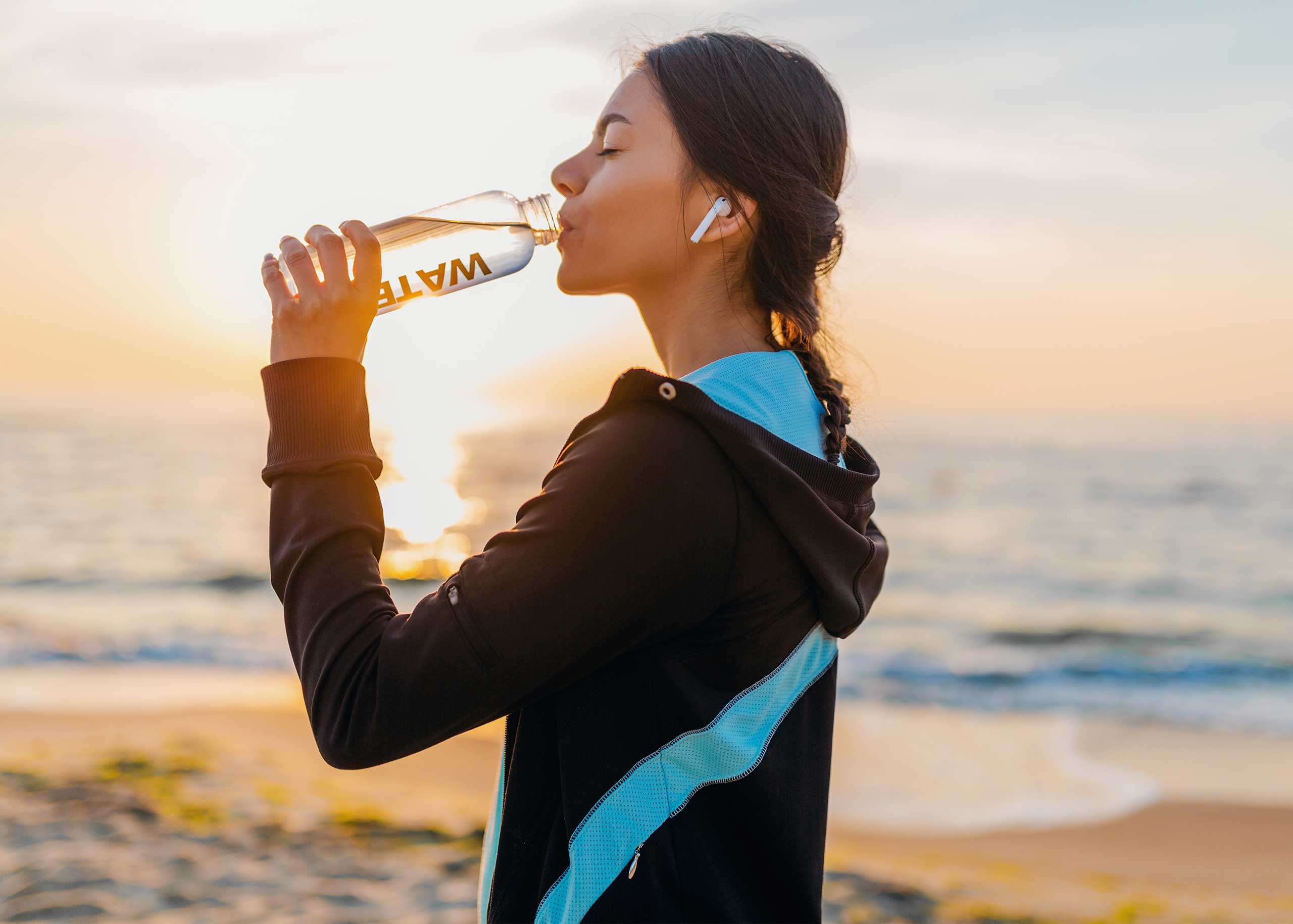Water is a vital lifeline that plays an important role in every cell function, and urological health is no exception. Your kidneys, bladder, and urinary tract require optimal hydration to flush out waste, prevent infections, and maintain overall well-being.
There are many instances where proper hydration is essential to avoid potential health hazards such as kidney stones, urinary tract infections (UTIs), and bladder dysfunction. Let’s understand how daily water intake impacts your urinary tract health and how small but impactful changes in your hydration habits can improve your fluid intake and overall water and health balance.
The Role of Hydration in Urological Health
Your urinary system plays a crucial role in filtering toxins and maintaining kidney health. Without enough water intake, these toxins can accumulate, increasing the risk of dehydration, infections, kidney stones, and other complications. Here’s how hydration directly impacts your urological health:
- Flushes Out Toxins: Water helps the kidneys efficiently filter waste, preventing harmful substance buildup.
- Prevents Kidney Stones: Staying hydrated dilutes minerals in urine, reducing the chances of stone formation.
- Reduces the Risk of UTIs: Proper hydration ensures frequent urination, flushing out bacteria from the urinary tract.
- Supports Bladder Health: Dehydration can lead to concentrated urine, which may irritate the bladder and cause discomfort.
So, how can you ensure you’re drinking enough water to support your urinary tract health? Here are some hydration habits to incorporate into your daily routine.
1. Start Your Day with a Glass of Water
Your body naturally loses fluids overnight, so replenishing first thing in the morning is essential.
Why It’s Important:
- Kickstarts metabolism and helps the kidneys detoxify.
- Prevents morning dehydration, reducing kidney stress.
How to Make It a Habit:
- Keep a glass of water by your bedside and drink it before your morning coffee or tea.
- Infuse your water with lemon for added vitamin C and get a refreshing start to the day.
2. Maintain a Steady Water Intake Throughout the Day
Instead of chugging water all at once, it’s better to sip consistently to keep your system running smoothly.
Why It’s Important:
- Prevents sudden bladder pressure, which can cause discomfort or frequent urination.
- It helps maintain optimal kidney function by keeping fluid levels steady.
How to Make It a Habit:
- Carry a reusable water bottle and sip throughout the day.
- Set reminders on your phone or use hydration tracking apps.
3. Monitor Your Urine Color for Hydration Clues
Your body gives clear signs when you’re dehydrated, and urine color is one of the best indicators.
What to Look For:
- Light yellow or pale straw-colored urine = Good hydration.
- Dark yellow or amber urine = You need more water.
- Cloudy or strong-smelling urine = Possible dehydration or an underlying issue.
How to Make It a Habit:
- Make it a routine to check your urine color a few times a day.
- Increase your water intake if you notice darker shades.
4. Balance Water Intake with Electrolytes
Drinking excessive water without electrolyte replenishment can disrupt kidney health.
Why It’s Important:
- Electrolytes like sodium, potassium, and magnesium help maintain fluid balance and kidney function.
- Overhydration or drinking excessive water can also lead to low sodium levels, affecting your urological health.
How to Make It a Habit:
- Add a pinch of sea salt to your water or consume electrolyte-rich foods like bananas, leafy greens, and nuts.
- Opt for natural hydration sources like coconut water for a healthy balance.
5. Prioritize Water Over Sugary and Caffeinated Beverages
Caffeinated and sugary drinks can contribute to dehydration and irritate the bladder.
Why It’s Important:
- Coffee, tea, and sodas act as diuretics, causing frequent urination and potential dehydration.
- Artificially sweetened drinks may worsen bladder irritation.
How to Make It a Habit:
- Replace one cup of soda or coffee with a glass of water each day.
- Infuse water with fruits like berries or cucumber for natural flavor.
6. Drink More Water in Hot Weather or After Physical Activity
Your body loses more fluids through sweat, requiring increased hydration.
Why It’s Important:
- Prevents dehydration-related kidney strain.
- Supports proper temperature regulation and toxin elimination.
How to Make It a Habit:
- Increase water intake by at least 1-2 glasses after workouts or in hot climates.
- Eat hydrating foods like watermelon, cucumbers, and oranges.
7. Adjust Water Intake Based on Your Health Needs
Certain health conditions require modified hydration habits. If you have a history of kidney disease, UTIs, or bladder issues, follow a personalized hydration plan.
Why It’s Important:
- Conditions like kidney disease may require controlled water intake to prevent excess fluid buildup.
- Overhydration or underhydration can lead to complications if not managed properly.
How to Make It a Habit:
- Consult your doctor about your ideal daily water intake.
- If you have kidney stones, ask about the best hydration plan to prevent recurrence.
FAQ
Aim for 8–10 glasses (2–2.5 liters) of water per day. Your needs may vary based on weather, activity, and health conditions.
Yes, drinking too much water can lower sodium levels in your body, which may affect kidney function. Stay balanced and don’t overdo it.
Yes, coffee, tea, and alcohol make you urinate more, which can lead to dehydration. Drink water to balance it out.
Dark urine, dry mouth, dizziness, and fatigue are signs of dehydration. Light yellow urine means you’re well-hydrated.
Final Thoughts
Proper hydration is one of the simplest yet most effective ways to support your urological health. By making small, consistent changes—like drinking water first thing in the morning, monitoring urine color, and balancing electrolytes—you can reduce the risk of common urinary issues and maintain kidney and bladder health.
Start implementing these hydration habits today and take a proactive step toward better urological health. If you have ongoing urinary concerns, consult a healthcare professional for a tailored hydration plan.








